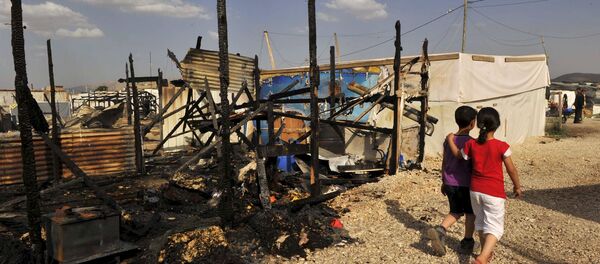Published Thursday, the WHO report specified that the deaths occurred either as the children traveled to the campsite or shortly after their arrival.
In the last eight weeks, approximately 23,000 people have arrived at the camp. The majority of the new arrivals are Syrian women and children fleeing fighting taking place in neighboring Deir ez-Zor between US-backed Kurdish forces and remnants of the Daesh terror group.
After traveling either on foot or in open-air trucks for days, many of the arrivals are forced to spend even more time outdoors due to lengthy security screening procedures. For the duration of the such procedures, refugees are left spending nights in exposed, unheated reception areas.
"The situation in Al-Hol camp is heartbreaking. Children are dying from hypothermia as their families flee to safety," Elizabeth Hoff, the WHO's representative in Syria, said in a statement.
"We are scaling up our efforts in Al-Hol, but we need faster approvals to allow us [to] deliver supplies, and we need guaranteed access to both the camp and the roads leading to it. We call on all parties to give us unhindered access so that we can reach these people and give them the help they desperately need," she added.
Since December 2018, the population of the camp, which is also experiencing shortages of health care services, sanitation facilities, latrines and tents, tripled in size from 10,000 occupants to nearly 33,000, says WHO.
Since the start of the Syrian conflict in 2011, more than 5.6 million people have fled the country, seeking safety in Jordan, Turkey and Lebanon among others, and some 6.6 million have been internally displaced, according to the UN Refugee Agency.



